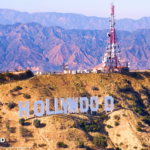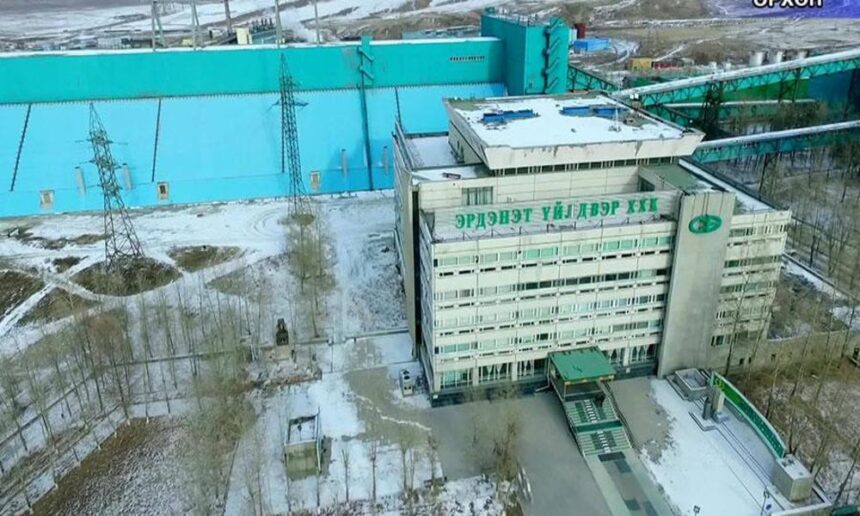In a democracy with a free market, the government is accountable for protecting public safety, human rights, and rights to personal property. Government institutions exist to allow this duty to be fulfilled, and the people directly select those who lead these institutions through elections.
Mongolians have been attempting to form a government that fulfills this duty for 26 years. Property can be private or public. The government must protect both private and public property, and not allow others – or itself – to cause damage or harm to what it is entrusted with protecting. However, the Standing Committee on State Property proposed on January 24, 2017, to invalidate Government Resolution No.330, dated June 13, 2016, to transfer 49 percent of Erdenet Mining Corporation and Mongolrostsvetmet LLC to state ownership, and have these plants operate as “100 percent state-owned companies”.
Mongolian Copper Corporation, which is a privately-owned Mongolian company, reached an agreement with Russia’s state-owned Rostec to purchase one of its assets. This deal was concluded with the owners finalizing agreements and payments. If this asset is seized by the state, it would mean that the government is refraining from following the basic principles of the free market, which will send an alarming message to foreign investors.
It would be different if Mongolian Copper Corporation voluntarily transferred its shares and the proper transactions were carried out. This would be another legitimate deal, with all parties reaching an agreement. This possibility still exists, and we can see that from the conclusions drawn by the parliamentary standing committee working group.
FINANCING QUESTIONS
The working group’s findings show that when purchasing the 49 percent stake in Erdenet Mining Corporation and Mongolrostsvetmet, Mongolian Copper Corporation transferred 400.27 million USD in three transactions to Alfa Bank in Russia from a Trade and Development Bank (TDB) account. The findings also include how this money was first collected by Mongolian Copper Corporation:
An initial 112 billion MNT from Ts.Purevtuvshin, who fully owns Mongolian Copper Corporation, was transferred from his personal account at Ulaanbaatar City Bank to the Mongolian Copper Corporation’s equity fund on June 14, 2016.
On June 20, 2016, 75 million USD was borrowed from TDB, using “future revenue sources” as collateral.
QSC Company provided a loan of 62.9 million USD on June 17, 2016. This company belongs to D.Erdenebileg, TDB’s owner. N.Zoljargal, who used to work for TDB and later became President of Mongol Bank, illegally granted QSC Company 100 billion MNT on November 28, 2014; another 100 billion MNT on April 6, 2016; and 160 billion MNT on June 28, 2016. These grants add up to 360 billion MNT. The reason these transactions are considered “illegal” is that Mongol Bank does not have the right to grant loans to an economic entity without government approval. Only commercial banks can have such relations with the central bank.
Riverstone Properties, fully-owned by Ts.Purevtuvshin, agreed to provide a loan of 70 million USD on June 17, 2016. The findings show that, on the same day, Riverstone Properties received a loan of 70 million USD from TDB.
United Energy Systems (UES) granted Mongolian Copper Corporation a loan of 68 million USD on June 14, 2016. This company is owned by D.Erdenebileg, who is also the owner of TDB. Simultaneously, UES received a loan of 68 million USD from TDB to invest in a project to build a power plant in the South Gobi. There is no evidence that the project exists.
Kinetic Company, which is registered in Singapore, provided a loan of 68 million USD on June 17, 2016. This same company borrowed 68 million USD from TDB, using copper concentrate to be purchased from Erdenet Mining Corporation as collateral, on June 16, 2016.
So these six loans add up to the 400 million USD required to finance the purchase of EMC shares, and 346 million USD in loans to five different companies were financed by TDB in a single day. These loan agreements were all written up in the same way, with only the borrower’s name changed, and did not require any existing collateral or guarantees. D.Erdenebileg owns 93 percent of TDB and 99.1 percent of Ulaanbaatar City Bank.
WHO OWNS THESE SHARES?
It is clear that the 400 million USD used to purchase the contested shares of Erdenet Mining Corporation and Mongolrostsvetmet came from artificially structured sources: 56 million USD from Ulaanbaatar City Bank and 354 million USD came from TDB, not six different entities. Can commercial banks operate this way? The key question here is whether or not they have broken the law, and the key issue today is not about the share purchase, but revolves around whether or not the owners of bank used the private and public funds held by their banks to their own advantage.
The State Property working group led by MP Sh.Radnaased, head of the parliamentary standing committee, believes that the law was broken.
TDB’s primary shareholder, Ts.Purevtuvshin, and the key executives who report directly to him have been registering a number of businesses in their names since 2011, and have illegally privatized state-owned companies, established concession agreements, and made purchases. To do so, they used TDB’s funds, loans that were guaranteed by the government, and funds that were illegally granted by Mongol Bank.
The Banking Law of Mongolia was broken. TDB’s own assets are estimated to be 745 billion MNT. However, in order to purchase 49 percent of Erdenet Mining Corporation and Mongolrostsvetmet, they issued 900 billion MNT in loans. This amount exceeds the commitment of the primary shareholder. TDB cannot legally grant a loan that exceeds 20 percent of its owners’ equity to a single borrower, which means they cannot offer a loan of more than 146 billion MNT (70 million USD). Therefore, they granted loans to several companies (established under different names by the bank’s associates) and sent the money to Mongolian Copper Corporation from different accounts.
Since assuming control of Erdenet Mining Corporation on June 27, 2016, Mongolian Copper Corporation has received 47.1 million USD in 2012 dividends, 8.6 million USD in 2013 dividends, 2.6 million USD for an advance payment, 17 billion MNT for QSC Company contract payment, and 2.7 billion MNT for Khutul Cement and Lime Plant. This adds up to approximately 67 million USD.
The parliamentary working group also concluded that TDB had, in its own accounts, 160 billion MNT from Development Bank of Mongolia (3.7 billion JPY from Samurai Bonds) and 360 billion MNT illegally borrowed from Mongol Bank, used Chinggis Bond financing to grant 84 billion MNT and 137 billion MNT to Khutul Cement and Lime Plant and Darkhan Metallurgical Plant respectively, and gave 90 million USD to QSC Company for road construction. In other words, the working group believes that a total of 700 billion MNT in public funds have been mismanaged by TDB.
These numbers show the public that our economic decline traces back to our politics. Of course, our economy would end up in decline and the value of our currency would weaken when our central bank and our biggest commercial bank have been operating this way. It begs the question, how reliable are our commercial banks? Do they all look good from the outside, while actually being terrible on the inside? Are there any guarantees for the savings of our people? What changed after Mongol Bank acquired a new president? The current Speaker of Parliament, M.Enkhbold, who was the Mayor of Ulaanbaatar when Ulaanbaatar City Bank was established, knows very well that the bank was established using public funds. When and how did 99 percent of the shares of this bank end up being held by a single individual? The people demand that the government answers these and many other questions today.
The people are waiting for the government to act swiftly, to determine right from wrong, and restore justice. Or, will these cases just disappear like others have because the government’s leaders are overly dependent on these large banks, their donations, and their support?
Change is unlikely to come before the presidential election. But, what will happen after the election? Will our new president pardon criminals, let cases disappear, and have the people bear the burden, as usual? Or, will we get lucky and see commodity prices rise, see our economy revived, forget about these cases by the summer (just like we forget about the smog), and stay cheerful until the next crisis hits?
2017.02.01
Trans. by B.Amar












